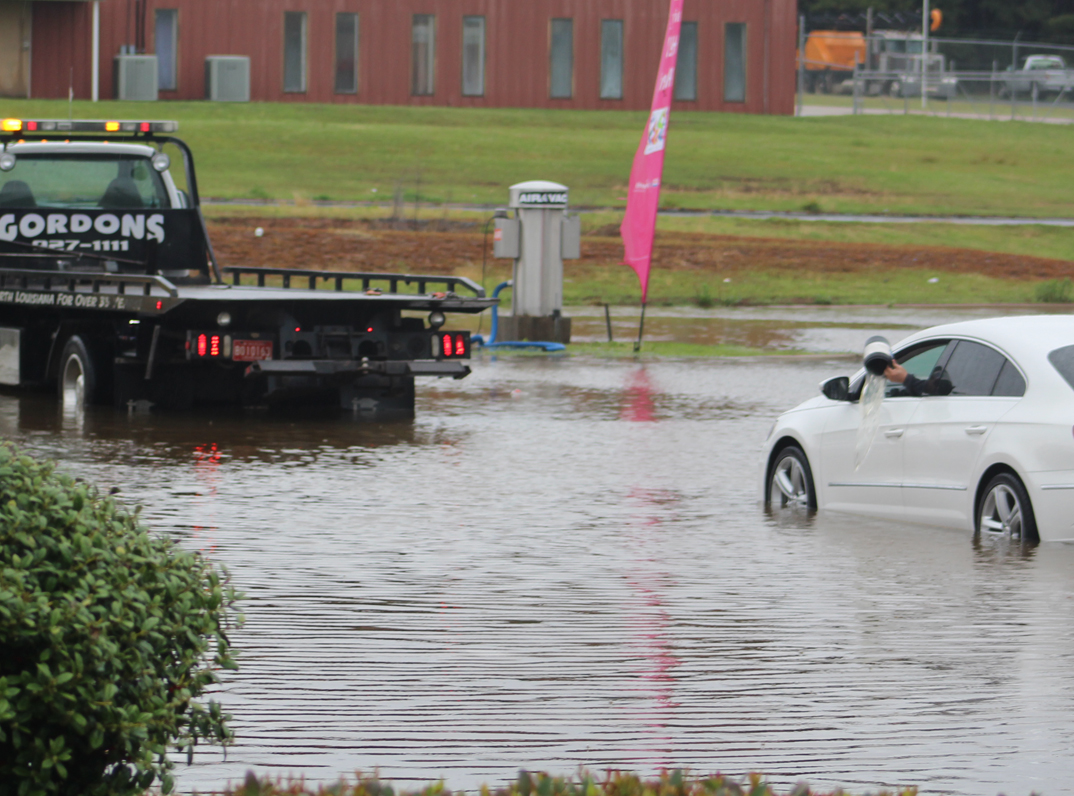228
An emergency operations plan is a required plan for each of the 64 parishes in Louisiana, and Webster Parish is no different.
The Webster Parish Office of Homeland Security and Emergency Preparedness has a copy of its plan online, on the police ju

Flash flooding stranded cars through out the area. A Gordon’s wrecker driver prepares to pull a stranded driver out of the waters along Highway 531 Wednesday morning. Bruce Franklin/Press-Herald
OHSEP lays out parish emergency plan
previous post



